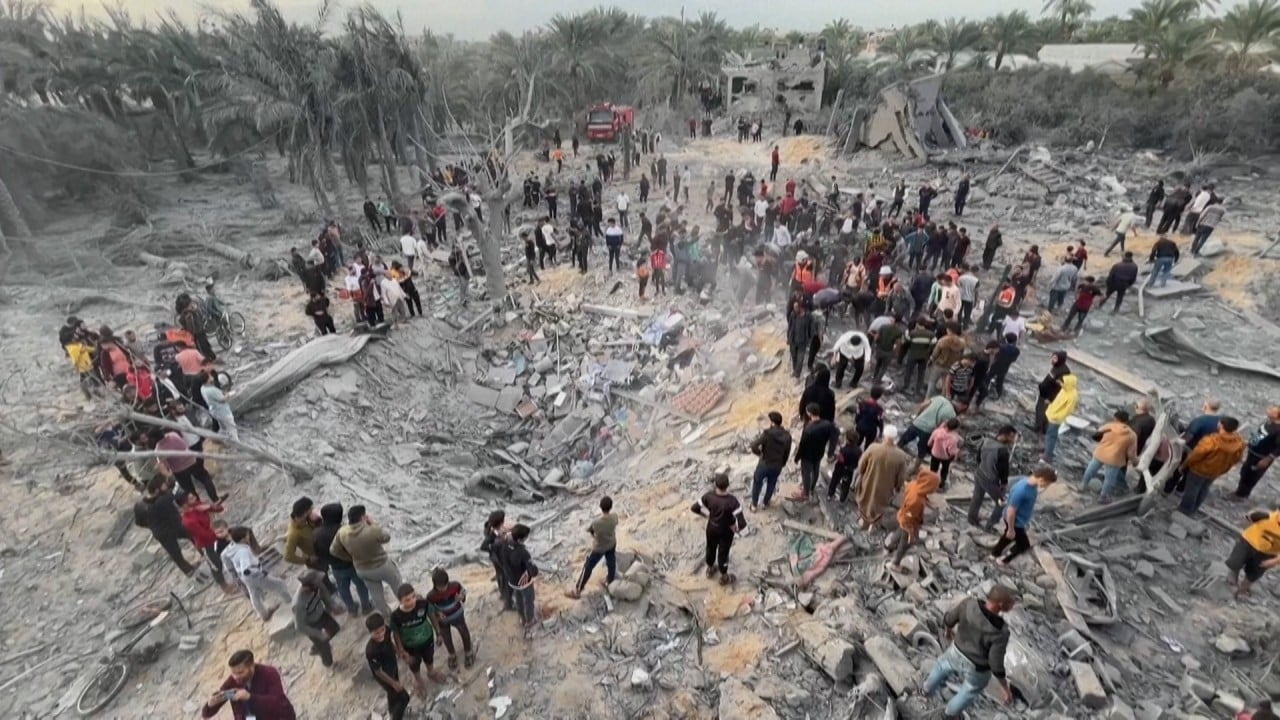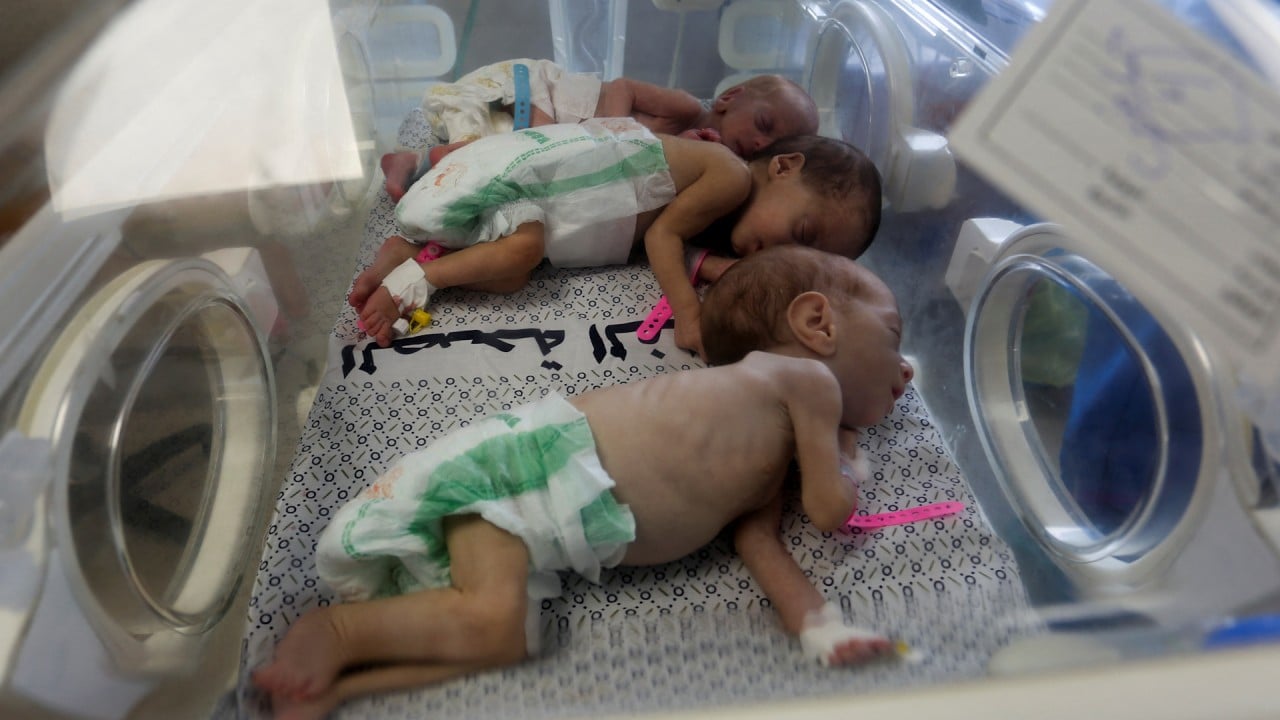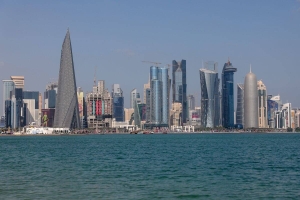Philippine MSF aid worker on being caught in the Israel-Gaza war: ‘I could smell rotten flesh’
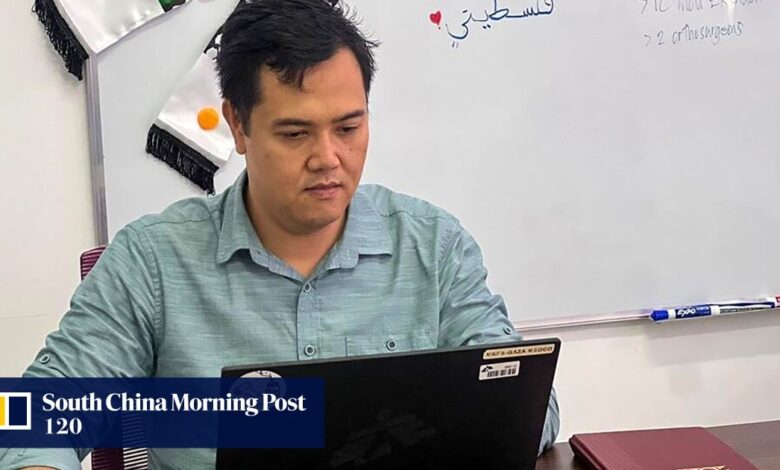
[ad_1]
As a medical worker, my job is to provide those who are suffering with help and with aid. But I have had to turn people away. We had no medical supplies, except for a small emergency kit with the most basic medicine. People would see our cars, they would see we are from Medecins Sans Frontieres, and come to us for help, but we didn’t even have gauze to give to them.
I saw a patient with burns caused by white phosphorus. It was a patient from al-Shifa Hospital. They were moving to the south when Israel told everyone to evacuate. Without supplies, without access to the facilities to treat third-degree burns, what would have happened to that patient? They are probably dead now.
The world has turned a blind eye to so many deaths. These are children, women, the elderly – just ordinary civilians. How many medical staff have died? A lot of them I knew and I worked with. How many hospitals were devastated by bombs? Hospitals and ambulances, they should be a temple of health and protection, but they are now graves.
As an expat in Gaza, I was not allowed to leave our guest house in Gaza City. All the work I did had to be done remotely. When they bombed the Al Abbas Mosque next to our guest house, it shattered all the windows and even destroyed the metallic doors. Our offices were devastated.
Indonesian Hospital in Gaza forced to turn away patients as supplies run out
Indonesian Hospital in Gaza forced to turn away patients as supplies run out
I think our biggest fear was that we would be part of the collateral damage if we were hit by bombs.
Our guest house was near the al-Shifa Hospital. If you go to the rooftop on the second floor, you can actually see the morgue of the hospital. And we could see piles and piles of white cloth that they had wrapped the bodies in. And you could tell from the size – you could see the small ones, which were children, and the big ones were the adults.
This devastated my boss, the head of mission.
In my role as a medical coordinator, I was in charge of communicating and liaising with our local staff, with the hospitals, the Ministry of Health and the different non-governmental organisations (NGOs) and stakeholders. But I also had to take charge of security and act as head of mission for two weeks because we had lost my boss, psychologically. It was too much for him because of all the bombings and deaths.
October 7
The night before the war was a Friday. It was a normal night. All of us expats had dinner together and went to bed after.
We were awakened because of this peculiar noise at dawn, around 6am. We were all confused. I asked my head of mission and the other expats if they knew what was happening, and they didn’t. Then we went outside and we saw the trails of the rockets flying out of Gaza.
Immediately, we went into work mode. We activated our emergency preparedness plan. We support four hospitals in the Gaza Strip: al-Shifa Hospital which is near us, Nasser Hospital in Khan Yunis, the Indonesian Hospital in the north, and Al-Awda hospital which is 150 metres away from there.
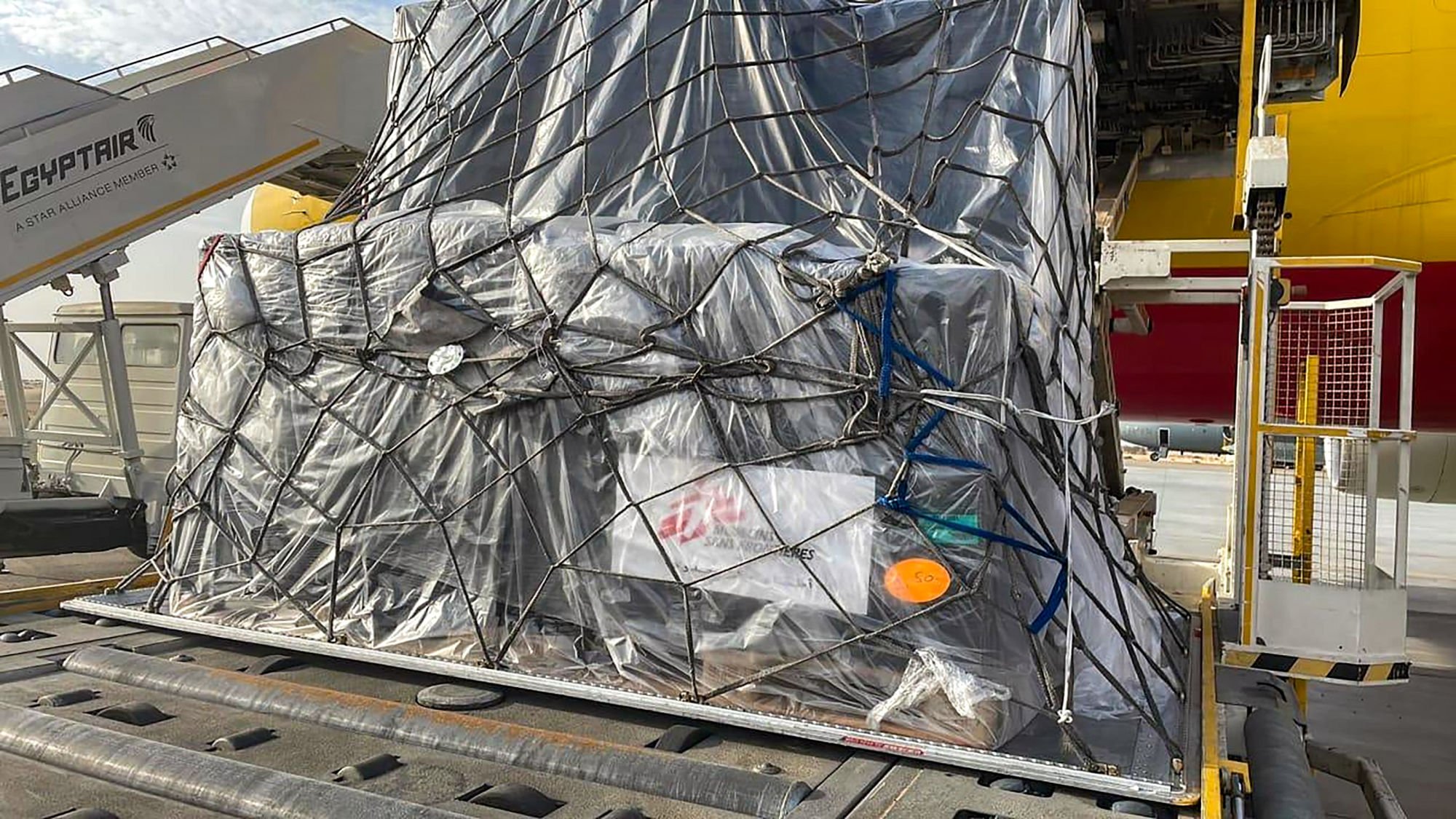
I was in contact with the Ministry of Health’s International Cooperation Department, which oversees the medical activities of all the international NGOs. When we asked them what they needed, they told me this war might go on for a long time, and that we might need medical supplies in the coming days.
Sure enough, in the first week, they asked for donations and we donated the nine months’ worth of stock that we had. And it was all used up within a week because of the influx of patients.
Because I worked remotely and was not allowed to enter hospitals, I was never in close contact with any dead bodies. I did not see any bodies in the streets or elsewhere. But I could actually smell rotten flesh.
Evacuation
Throughout those 25 days, we moved four times. We stayed in our guest house for three nights, and then we moved to the United Nations compound, followed by a training centre in Khan Yunis in the south and finally the UN Relief and Works Agency (UNRW) logistics centre in Rafah. We were at the UNRW parking space for two weeks.
There were a lot of children and families in the UN compound. To keep our spirits up, we had play therapy with the children. We organised morning exercises in the parking space and language lessons. We also started something called the “Rafah Show”, which was a pretend-talk show with someone playing a host and another person playing a guest, so we could share our stories and experiences in Gaza.
One morning at around 4am, we were awakened because of heavy bombardment around 100 metres away from the parking space. After that, we were moved to a house in a humanitarian zone. We waited there for a few days.
Around 1.30am on November 1, our national staff called to tell us that a list of names was released on social media for those who could evacuate from the border. Our names were on the list. We went to the Rafah border at 6.30am and we managed to cross to the Egyptian side by midnight.
What the world should know
I think what pains me a lot is when I see the devastation, comparing the Gaza Strip in my mind that I’d seen before the war and now. That pains me a lot. Gaza is a beautiful. Its people and the landscape. But it’s all destruction now.
The 26 days of conflict that I experienced in Gaza is a small portion that the Palestinians experience their whole lives. When I spoke to people in hospitals over the past two years, they said that war is a part of their lives. “This is the experience of our grandparents, our parents and this is what our children will experience,” they said.
This is far from the experience I had in Afghanistan in 2021, when the Taliban took over the whole country. In Gaza, they are bombing everywhere. In Afghanistan, it was Taliban soldiers against government soldiers. Here, it is everywhere. Women, children, elderly, hospitals, ambulances – they target everyone. There’s no safe place in Gaza.
‘Unbelievable loyalty’: Filipino nurse stayed with patient during Hamas attack
‘Unbelievable loyalty’: Filipino nurse stayed with patient during Hamas attack
I do not want to get too political, but there are claims and reports saying that they found a tunnel in al-Shifa Hospital. According to our doctors who were there, they said those are the sewage tunnels of the hospital. I don’t know. Even if you look into the hole, for example, how can a person fit there? Is this the network of underground tunnels they are referring to? That I don’t know.
There was a plan that, by next year, if the war didn’t happen, that we were going to have a collaboration with the Indonesian Hospital. And they’re saying below the Indonesian Hospital is also a Hamas base. Indeed, they have an underground area and I was there. But what’s in their underground is their sterilisation department and their laboratory. So is this the “network of tunnels”? I don’t know. I’ve never seen it. I haven’t seen a tunnel.
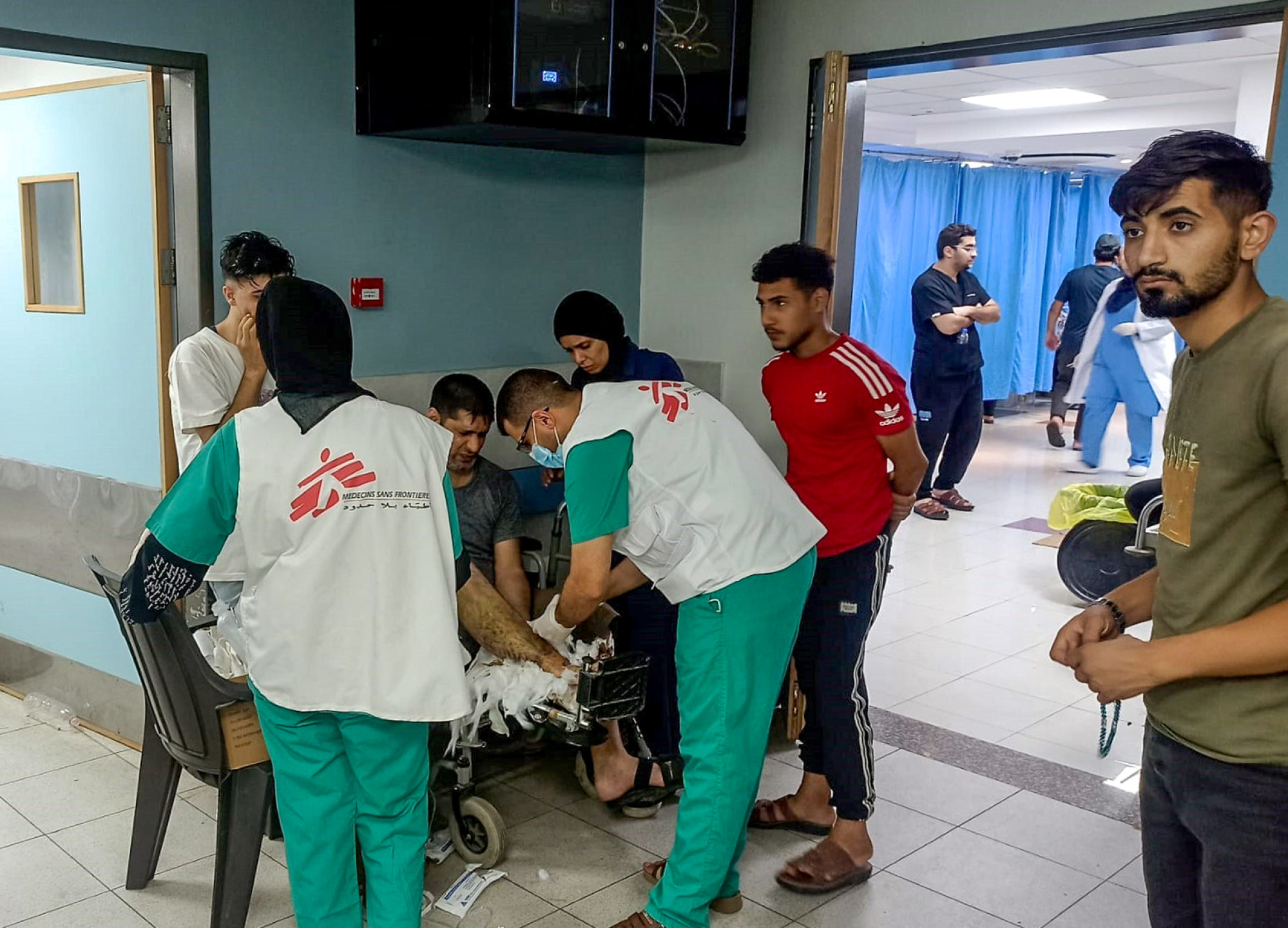
Returning to Gaza
Even with the network and communication problems, I am trying to keep in contact with my local staff, just to check if they are OK. Where are they? How many are injured? How many are alive?
What pains me a lot is when we contact them, they always respond by saying: “I’m still alive. We’re still alive. We’re still breathing.” It’s as if they’re waiting for their time to end. It’s a terrible, horrible feeling.
If there’s an opportunity for MSF to send me back to Gaza, for sure I’ll go back. In a heartbeat. My mum will be crying for sure. But I made a commitment 10 years ago, during Typhoon Haiyan in the Philippines. I was a university student and a volunteer, and I saw the work that the NGOs did, and I promised myself I would give my share for humanity.
I believe that, with my nearly two years of experience in Gaza and the network I’ve built, I could significantly contribute to the rebuilding of the Gaza Strip.
Amid fragile truce between Israel and Hamas, what is next for both sides?
Amid fragile truce between Israel and Hamas, what is next for both sides?
People in Gaza now, as we speak, are not only dying because of bombs, they are also dying because of starvation and probably epidemics, and sooner or later, kidney diseases because they’re drinking salty water.
Of course, I am afraid of death. I am human. At one point, when we were stuck in the Gaza Strip, I told some of my national staff that, whatever happens to me, I understand that cremation is forbidden in Muslim norms. But I asked them to burn my body and send my ashes home.
A lot of Gazans are staying in their homes. Because they know the Gaza Strip is their land, and they are prepared to die in their homes with their families.
For me, Gaza and its people are also home. It’s where my heart is.
[ad_2]
Source link


